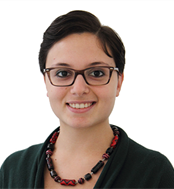Quick Careers Facts for the Department of International Development
Median salary of our PG students 15 months after graduating: £32,000
Top 5 sectors our students work in:
- Government, Public Sector and Policy
- Education, Teaching and Research
- Health and Social Care
- Consultancy
- International Organisations
The data was collected as part of the Graduate Outcomes survey, which is administered by the Higher Education Statistics Agency (HESA). Graduates from 2020-21 were the fourth group to be asked to respond to Graduate Outcomes. Median salaries are calculated for respondents who are paid in UK pounds sterling and who were working in full-time employment.
The analytical skills developed here have secured past graduates promising careers in organisations as diverse as central banks, NGOs, multilateral organisations, charities, investment banks, government, consultancies, manufacturing firms and religious missions, and as independent experts and writers.
Further information on graduate destinations for this programme
Laetitia Pancrazi
MSc Development Management, 2016
Project Manager at Ashford Borough Council/ Public Practice Associate (April 2019 Cohort)

In April (2018), I will be joining the Ashford Borough Council, where I will develop and implement their sustainable development strategy as their Environmental Project Manager. My MSc in Development Management provided me with the analytical skills, leadership capacities as well as in-depth knowledge about development policies to confidently undertake such a role. I will also be a Public Practice Associate where I will join a multidisciplinary cohort of built environment professionals to conduct collective research. I am thrilled to be using the rigorous research methods and critical thinking capabilities I was taught at the LSE to contribute to the fields of urban development and planning. My teachers and fellow students were, and continue to be, constant inspiration to grow, learn, and help shape a better world.
Thomas Pieper
MSc Development Management, 2016
Consultant (Education and Employment Promotion) at GOPA Consultants, Germany

Having worked 8 years in business consulting and pharmaceuticals, I wanted to pursue a career change for quite some time. After several job applications, I thought another master’s program could pave the way. It turned out that the LSE Development Management program was the only program with a real-live consultancy assignment, which was a perfect match for me, since I didn´t want to purely do academic studies. It turned out to be one of the best year´s in my life so far, getting completely new insights, food for thought and especially meeting these great people across all the globe and various backgrounds.
Now implementing education projects across all continents for the European Commission or the GIZ (German Development Corporation), I´m not only able to relate back to the things I learned at LSE, but also to access this tremendously rich network of my former fellow students, working in different areas of development. Just last week, when I visited a conference on digitalization and development in Geneva, one of my former friends at LSE lead one of the workshops there. All in all a very enriching and exciting experience I recommend to everyone either changing careers or early pursuing the development corporation path.
Josianne Galea Baron
MSc Development Management, 2016
Children’s Rights and Business Specialist at Unicef UK

After graduating from the MSc Development Management in 2016, I joined the NCD Alliance, a civil society coalition tackling noncommunicable diseases globally as a capacity development officer, working directly with grassroots advocacy organisations in East Africa and elsewhere. Currently, I am a Children’s Rights and Business Specialist at Unicef UK, working to ensure UK businesses respect and promote children’s rights at home and abroad. Throughout this time, I have found the skills and confidence that I gained during my studies at the LSE International Development department to be an invaluable asset. Over and above the content of the classes and extracurricular opportunities available, the chance to join a community of fellow students - each with their own fascinating experiences and perspectives on development issues - was (and continues to be) a great source of knowledge and friendship.
Dustin R. Daniels
MSc Development Management, 2013
Chief of Staff, Office of the Mayor, City of Tallahassee

I chose LSE because of the internationally recognized academic programs and its preeminent position among social science research institutions around the world. I look back on my time at LSE very favorably. In addition to loving my academic experience, the opportunity to build relationships with some of the most accomplished students from around the world was truly edifying.
At LSE, I worked on two live consultancy projects focused on financial development in Sub-Saharan Africa, and social innovation in Sri Lanka. I now work in the Mayor's Office in the Capital City of the State of Florida, the country's third largest state. I also serve as a lecturer in the College of Social Sciences and Public Policy at Florida State University.
Support for your career
Many leading organisations give careers presentations at the School during the year, and LSE Careers has a wide range of resources available to assist students in their job search. Find out more about the support available to students through LSE Careers.